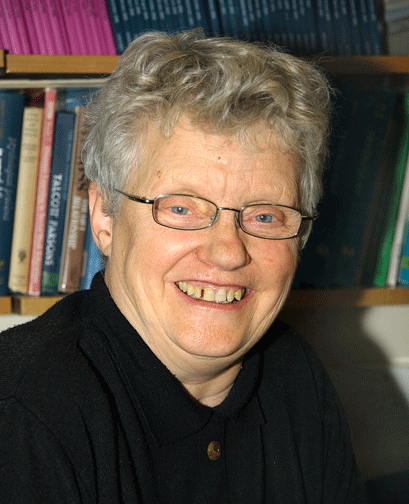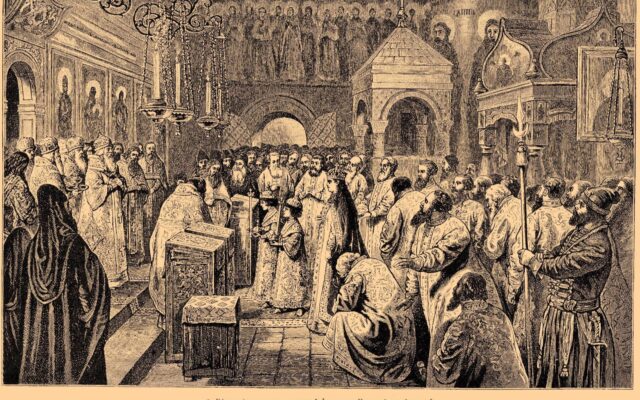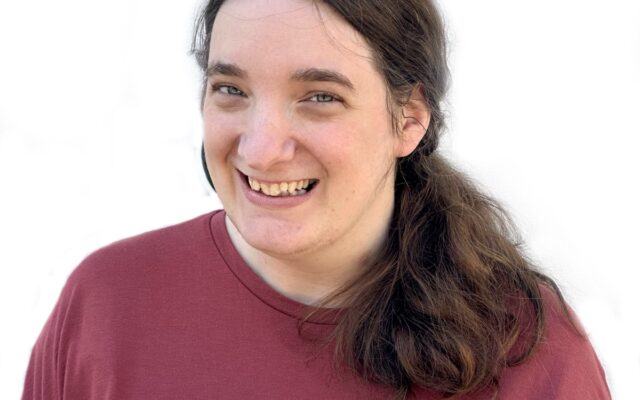Mabel Cooper was found at a few weeks old on the streets of Islington in 1944, where her mother was begging. She was taken into care and never saw her mother again.
She spent the first 13 years of her life in a string of institutions across England. Never having the opportunity to attend school, she could not read or write.
Aged 13, she was sent to St Lawrence’s Hospital, a long-stay “mental handicap hospital” in Caterham, Surrey. Years later, she was to discover that her hospital records labelled her an “imbecile”, “educationally very backward” and “dull and slow in response”.
She found the hospital noisy and oppressive. Moved to an adult ward at 15, she was given manual work to do rather than education or training. Inmates were not allowed personal possessions as there was simply no storage space, and instead had to use a shared cupboard of clothing from which to dress themselves each day.
Despite disliking St Lawrence’s, Mabel was forced to stay for nearly 20 years, finally leaving aged 31 to live in the community. Reflecting on her time in St Lawrence’s convinced her that long-stay hospitals should all be pulled down.
Cooper found supported living beyond the hospital walls to be initially bewildering but ultimately liberating.
‘You do what you want to do’
Cooper joined self-advocacy organisation People First and was initially in the Croydon branch where, eventually, she became chair.
Later, as chair of People First: London, she worked to encourage others to speak up for themselves and make their voices heard on issues that directly affected them.
In her words, “you do what you want to do and not get anybody else to do something for you”.
The drive to speak up for herself manifested in her desire to tell her life story.
A serendipitous meeting between Cooper and Open University lecturer Dorothy Atkinson in 1994 led to an opportunity for her to do exactly that. A combination of her recollections and the pair’s rigorous archival research led to the publication of Mabel’s life story in Forgotten Lives in 1997, later made available on the Open University website. This account was one of the first of its kind.
Delving into her past was often painful. Labels attached to her were cruel and dehumanising. She also discovered relatives she did not know existed
Cooper was very clear she wanted to not only understand her life’s history and fill in some of the blanks from her chaotic early years but also use it to educate people who had no awareness of what she and people like her had experienced.
She hoped that telling her story would inspire other people with learning disabilities – including those who had similar experiences in long-stay institutions – to tell their stories and thus reclaim their past.
Delving into her history was often painful. The labels that had been attached to her were dehumanising and cruel. She also discovered relatives she had never known existed.
Through sharing her story, Cooper also raised awareness with professionals and the public about life as a resident in a long-stay hospital and beyond. She spoke at several national and international conferences, shining a light on the differences between official records and the reality of lived experience. Through her talks and publications, she contributed to the training of nurses, social workers and teachers.
She also took time to go into schools and educate children about their learning-disabled classmates, thus reducing ignorance, stigma and bullying.
In 2010, Cooper was awarded an honorary degree from the Open University in recognition of her research and educational work.
Reflecting on all she had achieved, and holding it in contrast to the damning notes in her records at St Lawrence’s, she wrote, “they were wrong to make those assumptions. I’ve proved them wrong”.
Mabel Cooper was the guest of honour at the St Lawrence site when they demolished the hospital in the 1990s. She died in 2013.
Cooper M (Part I with Atkinson D). Part I: Mabel Cooper’s Life Story; and Part II: Mabel Cooper: My Quest to Find Out. Open University. 1997.
Advocreate. No Longer Shut Up: Finding Mabel Cooper’s Voice. 2015.





